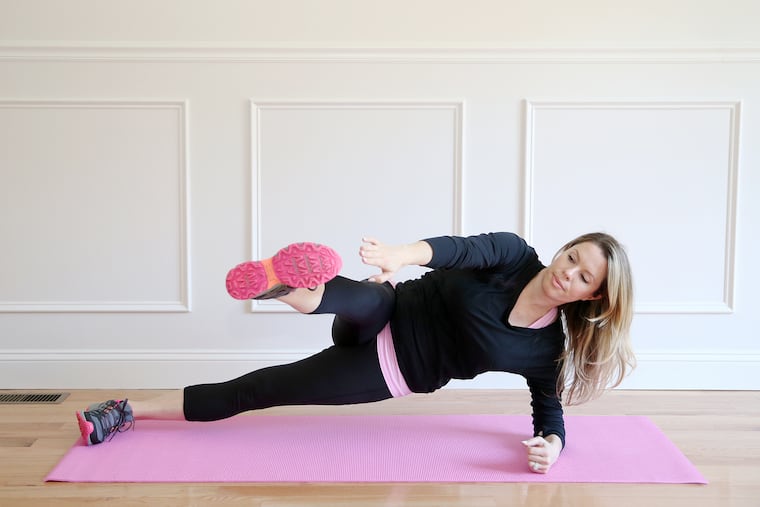Virtual personal training: How to find the right coach for you
Don’t waste your time aimlessly surfing the web for the perfect personal trainer. Instead, follow my simple tips of what to look for.

Could you use a little help achieving your health goals? This year, we’ve been doing our best to adjust and acclimate to a pandemic lifestyle. And with this sudden shift, we lost a lot of luxuries, such as going to the gym, training with a health coach, and receiving the consistent motivation and instruction necessary to safely accomplish our goals.
Now, with the majority of social interactions being limited to online meetings, why should engaging in exercise be any different?
If you’re looking for a new way to work out at home, consider virtual training. Because many prefer a face-to-face experience to encourage accountability or a better understanding of how exercises are to be performed, virtual training has been a lesser known, less used option. But when the COVID-19 outbreak caused gyms to close, personal trainers began updating their options to include internet-based sessions that can be done from the safety of your home.
» READ MORE: A personal trainer’s favorite get-fit gifts for the holiday season
You may think that searching, connecting, and building a relationship over the internet sounds like a tough task, but it’s much easier and more personal than it seems. In fact, you may even prefer virtual training to gym-based training due to its accessibility and convenience. Don’t waste your time aimlessly surfing the web for the perfect exercise partner. Instead, follow my simple tips of what to look for.
Well-educated. When it comes to finding a qualified trainer, it’s important to check the person’s credentials. If you scroll through such social media sites as Instagram, you will find a lot of people claiming to be a professional fitness coach, but being an avid exerciser does not make you a trained professional.
There is a science behind safely building muscles, managing weight, and understanding the influence of nutrition. Becoming a certified personal trainer requires passing an extensive exam in such areas as biology, physiology, and mathematics through a National Commission for Certifying Agency organization such as ACE, NASM, ISSA, or ACSM. This education also provides tools for learning the fundamentals of interpersonal skills, which are essential for establishing a thriving working relationship with a client.
If you have unique health needs or conditions, seek out a trainer who is qualified in these areas. NCCA programs offer trainers a vast variety of specializations to choose from, such as rehabbing after injury or working with postpartum women. And working with a professional who has an education specific to your circumstances can make the difference between engaging in a generic workout program that can cause injury and one that’s tailored to your specific health concerns.
Referrals. One of the best ways to find your next personal trainer is through word of mouth. Chances are there are people in your circle of family, friends or coworkers who work, or have worked, with a trainer they like and respect. Or, if you are a member of a gym that’s temporarily closed, browse its website for a list of employed trainers along with their resumes. If someone stands out to you, connect and ask whether the person is able to accommodate virtual training or create an exercise program that can be completed from home.
If you found your trainer online without the assistance of a friend or family member, be sure to ask for referrals from previous clients. Ask important questions that are key to the success of your wellness program — such as training style and accountability check-ins. Also know some of the valuable traits that make a trainer skilled in the professional, including:
How many years has the trainer been practicing, and what are the trainer’s credentials?
Is the trainer a good listener? Did the trainer seem accommodating?
Did the trainer ask you to fill out a health assessment, complete a waiver, inquire about injuries, health conditions, medications, and your exercise history? Your responses are crucial for building a safe program. For example, if you take medication for high blood pressure, which may cause light-headedness, your trainer needs to know this.
Ask your referring friend whether the trainer canceled frequently or was a no-show.
Remember, these interactions are intended to influence the health of your body and mind. It takes only one wrong move or negligent piece of advice to result in a debilitating injury or intimidate you from exploring exercise options in the future. Aim for three solid referrals, if possible.
If you have more questions or need further help finding the right virtual trainer for you, email me at ashley@ashleyblakefitness.com.
Ashley Blake Greenblatt is a certified personal trainer and wellness coach in South Jersey. To learn more about her virtual training program, go to ashleyblakefitness.com.